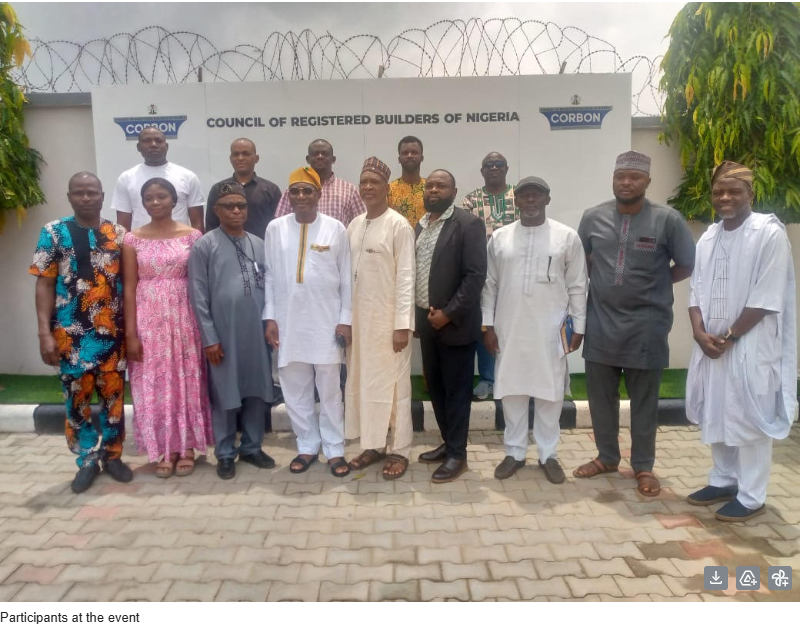540
Daniel Adaji
The Council of Registered Builders of Nigeria (CORBON) has introduced new registers to formally recognise and regulate building technologists, technicians, and craftsmen operating across construction sites in Nigeria.
Chairman of CORBON, Dr. Samson Opaluwah, made the announcement on Friday at a press briefing held at the Council’s headquarters in Abuja.
He said the move was in line with the Council’s responsibility to supervise and manage all categories of workers on building sites and to support the Federal Government’s Renewed Hope Agenda on Technical Vocational Education and Training (TVET).
“In line with the duty of the Builder to manage and supervise all workmen and artisans on building sites, it is my pleasure to announce the decision of the Council of Registered Builders of Nigeria (CORBON) to commence the registration of other cadres of practitioners in the process of building delivery,” he said.
Opaluwah explained that the registers would cover Building Technologists, Building Technicians, and Building Craftsmen — groups that play key roles in construction but have until now operated outside formal regulatory structures.
The decision was ratified at CORBON’s 125th Council Meeting held recently, and represents a major shift in Nigeria’s approach to the building sector.
“These cadres are being given proper recognition and licensing within the national economy,” he said, adding that their certification will now fall under the National Skills Qualification Framework (NSQF).
Building remains one of the most critical sectors in Nigeria’s economy — a provider of shelter and a major employer across all parts of the country, from rural hamlets to urban centres. “There is no village where they are not building anywhere you find human beings, shelter is required,” he emphasised.
Since its establishment under Decree 45 of 1989 (now an Act of the National Assembly), CORBON has registered over 4,000 university and polytechnic-trained builders. However, Opaluwah noted that these professionals do not work in isolation.
“They work alongside artisans, technicians, and craftsmen, many of whom have received training the builders do not control — and who are often not formally recognised by society,” he said.
This lack of formal recognition has limited their career growth and contribution to the economy, despite forming the bulk of private sector practitioners in construction. The new registration framework is designed to change that.
“The new registers accommodate and recognise other technical players who work on building projects, recognise and license competencies and provide for the transition of craftsmen, technicians, and technologists into the mainstream register of Builders,” he said.
CORBON’s framework introduces tiered levels of registration under the NSQF, ranging from Level 1, for entry-level workers, to Level 9, equivalent to a PhD.
“What we are doing here now is to say that both those who are coming through the formal sector and those who are coming from the informal sector, once you have the skills and the competencies, our council will register you,” Opaluwah said.
The Council is also developing a Labour Market Information System (LMIS), which will host registered workers’ profiles and link them to appropriate remuneration levels.
“If you want someone on Level 8, which is equivalent to a Master’s degree holder, you should be ready to pay for that level of competence,” he added.
The new system promises widespread benefits. For practitioners, it enhances professional identity and mobility. For employers, it offers clear benchmarks for recruitment and promotion. Regulatory bodies will enjoy better oversight, and governments can access reliable data for workforce planning. Ultimately, society benefits through improved safety, quality, and efficiency in building delivery.
The regulator urged all construction site workers — technologists, technicians, and craftsmen — to seize the opportunity.
“There will be a call for applications for registration in due course,” he said. “Together, we can continue to elevate the standards of our profession and make a lasting impact on the built environment.”



